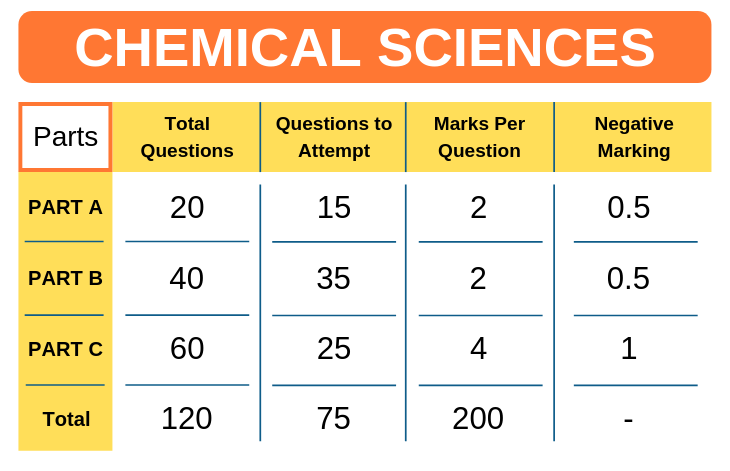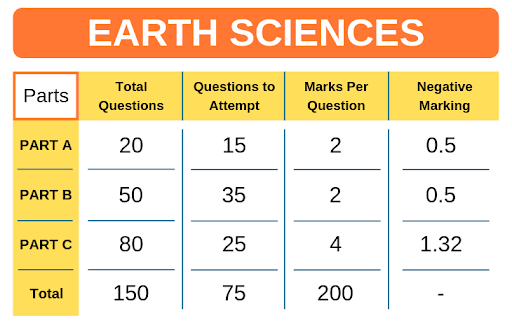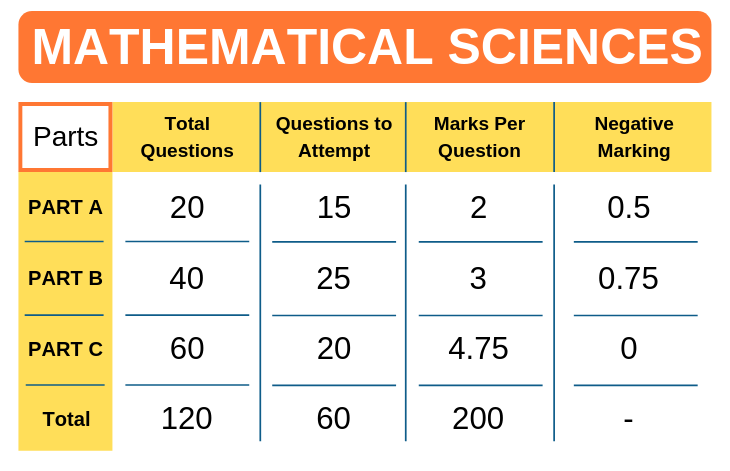CSIR NET 2022 exam date has been announced by the CSIR. The exam will be held on January 29, 2022. The CSIR NET notification 2022 released by the NTA on the official website on 3/12/2021. The application fees is INR 1000 for General, INR 500 for OBC & EWS, and INR 250 for SC, ST, PwD candidates
CSIR UGC NET Eligibility 2022 is stipulated by the NTA (National Testing Agency). Candidates willing to apply for CSIR UGC NET 2022 must possess M.Sc. or equivalent degree/Integrated BS-MS/BS-4 years/BE/B Tech/B. Pharma /MBBS with at least 55% marks to be eligible to apply for the exam. CSIR NET Exam is scheduled to be held on June 21, 2020. All the candidates are advised to go the eligibility criteria before applying for the exam.
Candidate must be an Indian citizen and should be a maximum of 28 years (33 years for SC/ ST/ PwD/ female candidates and 31 years for OBC (non-creamy layer) candidates) as on July 1, 2020. There is no upper age limit for candidates applying for lectureship
CSIR NET Eligibility Criteria 2022
Before applying for CSIR NET, candidates should go through the eligibility requirements for CSIR NET. If any candidate is found to be ineligible at later stages then the candidature would be rejected straightaway. Aspirants can check below different eligibility criteria requirements for CSIR NET 2022.
Nationality
- Candidate must be an Indian citizen.
- If any candidate is found otherwise, the application form of that particular candidate will be rejected.
CSIR NET Age Limit
- Maximum age limit prescribed for the award of Joint Research Fellowship (JRF) is 28 years as on July 1, 2020.
- Upper age limit may be relaxed up to 5 years for reserved category candidates (SC/ST/Persons with Disability (PwD) and female applicants) and 3 years for OBC – Non-creamy layer candidates.
- There is no stipulated age limit for the Lectureship.
CSIR NET Educational Qualification Requirements
- Candidates must have a degree in B.Pharma or BE or B. Tech or MSc or MBBS or Integrated BS-MS or any other science degree with at least 55% marks.
- 5% marks relaxation is given to candidates who belong to reserved category.
- Aspirants who are currently pursuing M.Sc and have completed graduation (10+2+3) are also eligible for this examination.
- Candidates who have done B.Sc or if they are pursuing the Integrated MS-PhD program and have got a minimum 55% marks then they are eligible to apply.
- Candidates who have completed graduation from science or engineering background can also get the fellowship, provided they register for Ph.D. or Ph.D. integrated program within two years.
The table below provides a description for relevant degree/ academic background to choose a particular stream for CSIR NET 2020:
| Subject | Eligibility |
|---|---|
| Life Science | Pursued academic qualification in Life Science only |
| Chemical Science | Have a degree in M.Sc./BS/B-Tech or equivalent qualification in Chemistry with required percentage mentioned above |
| Earth Science | Pursued M.Sc./BS-MS/BS-4 Years/B-Pharma or any equivalent degree in the field of Earth Science within the required qualifying criteria. |
| Mathematics | Pursued M.Sc./BS-MS/BS/B-Tech or any equivalent degree in the field of Mathematics to meet the eligibility requirements |
| Physical Science | Possess a valid degree of M.Sc. Physics or BS-MS in Physics or any equivalent degree within the required percentage |
Note:
- Candidates who are enrolled in M.Sc. program or those who have completed 10+2+3 years of education are also eligible to apply under the Result Awaited (RA) category on the condition that they will complete the qualifying degree with qualifying marks within the 2 year validity period to be eligible for the fellowship from the effective start date.
- PhD holders who completed Masters’ degree before September 19, 1992, with 50% marks are only eligible for lectureship.
- Candidates who will qualify for Lectureship will be eligible for recruitment as Lecturers as well as for Junior Research Fellowship in a Scheme/Project, if otherwise suitable. However, they will not be eligible for Regular JRF-NET Fellowship.
- For the award of JRF (NET), candidates will receive fellowship either from CSIR or UGC as per their assignment or from schemes with which they may find an association.
- Candidates declared eligible for Junior Research Fellowship under UGC scheme and Lectureship will be governed by UGC rules/regulations in this regard.
CSIR NET 2022 Reservation Criteria
CSIR has stipulated certain guidelines with respect to relaxation minimum marks required and upper age limit for candidates from different reserved categories (SC/ST/OBC-NCL/PwD) and female applicants
Category wise CSIR NET Relaxation of marks for eligible candidates from reserved categories is specified in the table below:
| Category | Relaxation in marks (In percentage) |
|---|---|
| Other Backward Classes | 5% |
| Scheduled Caste | 5% |
| Scheduled Tribe | 5% |
Candidates can also check the relaxation applicable for reserved category candidates in upper age limit.
| Category | Relaxation in Age Limit (in years) |
|---|---|
| Female | 5 |
| SC | 5 |
| ST | 5 |
| OBC (non-creamy layer) | 3 |
| Persons with disability (PwD) | 5 |
Selection of Junior Research Fellowship and Lectureship
While filling the CSIR UGC NET Application Form candidate has to mention whether he/she is applying for JRF or LS based on their eligibility and give their preference in such a manner.
- A candidate who applies for JRF and fulfils the laid down eligibility criteria for Lectureship also will be considered for both JRF & LS.
- If a candidate is found to be over-aged for JRF (NET), he/she will only be considered for Lectureship (NET).
- Option/preference given by the candidate in his/her application form is final and request for change will not be entertained at any later stage.
- The number of candidates qualifying the exam depends on the number of fellowships available & performance in the test, subject to the condition that they fulfil the laid down eligibility criteria.
- Candidates with M.Sc qualification OR under M.Sc Result Awaited (RA) category shall be eligible for Lectureship (LS) subject to fulfilling the eligibility criteria as laid down by the UGC.
CSIR Eligibility for NET LS/JRF Exam [Subject Wise]
- CSIR NET Eligibility for Life Science – As per CSIR NET Eligibility for Life Science, the candidates are required to have any of the above-mentioned degrees in Life Science only.
- CSIR NET Chemical Science Eligibility – As per CSIR Eligibility, the candidates must have valid M.Sc./BS/B-Tech or equivalent qualification in Chemistry with required percentage criteria mentioned above.
- CSIR NET Earth Science Eligibility – The CSIR Exam Eligibility guidelines for Earth Science tells that the candidates must have completed M.Sc./BS-MS/BS-4 Years/B-Pharma or any equivalent degree in the field of Earth Science within the required qualifying criteria.
- CSIR NET Mathematics Eligibility Criteria – The CSIR NET aspirants are required to have a valid degree in M.Sc./BS-MS/BS/B-Tech or any equivalent study for Mathematics to fulfill the CSIR Eligibility conditions for Maths.
- CSIR NET Eligibility for Physical Science – In accordance with CSIR NET Eligibility for Physical Science, the candidates are required to have a valid degree of M.Sc. Physics or BS-MS in Physics or any related degree passed within the required percentage.
CSIR UGC NET Eligibility FAQ
Ques. What is the maximum age for appearing in CSIR UGC NET Exam?
Ans. The upper age limit for applying for the award of JRF shall be 28 years, which is relaxed up to 5 years for candidates belonging to Scheduled Castes/Schedule Tribes, Women, Physically Handicapped and 3 years for OBCs. However, there is no upper age limit for those applying for Lectureship.
Ques. What is the eligibility criteria/ minimum qualification for NET?
Ans. M.Sc. or B.Tech./B.E./B.S. 4 Year programme or an equivalent degree, with a minimum of 55% marks for general & OBC and 50% marks for SC/ST candidates, physically and visually handicapped candidates.
Ques. What is the maximum term for JRF?
Ans. The total tenure as JRF plus SRF(NET) will not exceed five years. This will include the tenure of Fellowship awarded by UGC/DST/DBT/ICMR/ICAR etc or any other funding agency/Institution.
Ques. Is there a provision of stipend for those who qualify for JRFs?
Ans. The stipend of a JRF selected through CSIR-UGC National Eligibility Test (NET) will be INR 31000/ p.m for the first two years. On completion of two years as JRF and if the fellow is registered for PhD, the fellowship will be upgraded to SRF (NET) and the stipend will be increased to INR 35000/- p.m for the 3rd and subsequent years.
CSIR UGC NET 2022 Exam Pattern – Chemical Sciences
In Chemical Sciences paper, there will be a total of 120 multiple choice questions, out of which candidates have to attempt only 75 questions.
- Part A, B, and C will have 20, 40 and 60 questions wherein candidates have to attempt a maximum of 15, 35 and 25 questions respectively.
- Each question will have four alternatives or responses, only one of them will be the correct answer.
- Questions in Part A, B and C will carry 2, 2 and 4 marks respectively.
- There is a negative marking of one-fourth marks for incorrect answers.
The infograph below explains the section-wise exam pattern for Chemical Sciences:

CSIR NET Syllabus for Chemical Sciences
CSIR NET Chemical Sciences Syllabus is divided into 4 sections:
| Major Topics |
|---|
| Inorganic Chemistry |
| Physical Chemistry |
| Organic Chemistry |
| Interdisciplinary Topics |
CSIR UGC NET 2022 Exam Pattern – Earth Sciences
In Earth Sciences exam, candidates have to answer a maximum of 15, 35 and 25 questions out of 20, 50 and 80 questions in Part-A, Part-B and Part-C respectively.
- Each question will have 4 alternatives, candidates have to mark the best alternative as their answer.
- Questions in Part-A and Part-B will carry 2 marks each and negative marking of 0.5 for wrong answer.
- Part-C will have questions worth 4 marks each wherein an incorrect answer can cost you 1.32 marks.
The infograph below explains the section-wise exam pattern for Earth Sciences:

CSIR NET Syllabus for Earth Sciences
CSIR NET Earth Sciences Syllabus is divided in various section tabulated below:
| Major Topics |
|---|
| Earth Sciences |
| Geology |
| Applied Geology |
| Physical Geography |
| Geophysics |
| Meteorology |
| Ocean Sciences |
Life Science Exam Pattern
CSIR UGC NET 2022 Exam Pattern – Life Sciences
Part-A, Part-B and Part-C will have 20, 50 and 75 questions, out of which candidates are supposed to answer any 15, 35 and 25 questions respectively.
- There will be four alternatives for a questions, candidates have to mark only one alternative as their answer.
- Questions in Part-A, B and C will be of 2, 2 and 4 marks respectively.
- There will be a negative marking of 25% in all the parts.
The infograph below explains the section-wise exam pattern for Life Sciences:

CSIR NET Syllabus for Life Sciences
There are 13 major topics under CSIR NET Life Sciences syllabus. Candidates can check detailed topic-wise syllabus from below table:APPLY NOWCHECK ELIGIBILITYGET UPDATES
| Major Topics | |
|---|---|
| Molecules and their Interaction | Cellular Organization |
| Cell Communication and Cell Signaling | Developmental Biology |
| Fundamental Processes | System Physiology-Animals |
| Inheritance Biology | System Physiology-Plant |
| Diversity of Life Forms | Evolution and Behaviour |
| Ecological Principles | Photosynthesis, Respiration and photorespiration, Nitrogen metabolism, Plant hormones, Sensory photobiology, Solute transport and photoassimilate translocation, Secondary metabolites and Stress physiology. |
| Methods in Biology | Applied Biology |
Maths Exam Pattern
CSIR UGC NET 2022 Exam Pattern – Mathematical Sciences
CSIR NET Mathematical Sciences exam will have 20, 40 and 60 questions, however, candidates have to attempt only 15, 25 and 20 questions in Part-A, Part-B and Part-C respectively.
- Each question will have 4 alternatives, Questions in Part A and Part B will have only one correct answer whereas Part-C questions may have one or more correct answers.
- Credit will be given only when exact number of correct answers are marked.
- There will be a negative marking of 25% in Part A and Part B. However, no negative marking is applicable in Part-C.
The infograph below explains the section-wise exam pattern for Earth Sciences:

CSIR NET Syllabus for Mathematical Sciences
There are four units in CSIR NET Mathematical Sciences Syllabus. All students are supposed to answer Unit 1 questions, students with mathematics background may attempt additional questions from Unit 2 and 3 whereas students with statistics background are expected to solve problems of Unit 4. Unit-wise syllabus of CSIR NET Mathematical Sciences is tabulated below:
| Major Topics |
|---|
| Unit 1: Analysis Linear Algebra |
| Unit 2: Complex Analysis, Algebra, Topology |
| Unit 3: Ordinary Differential Equations (ODEs), Partial Differential Equations (PDEs), Numerical Analysis, Calculus of Variations, Linear Integral Equations, Classical Mechanics |
| Unit 4: Statistics, Exploratory Data Analysis |
Physical Science Exam Pattern
CSIR NET Exam Pattern 2022 – Physical Sciences
There will be 20, 25 and 30 questions in Part-A, Part-B and Part-C, out of which a maximum of 15, 20 and 20 questions respectively have to be answered by the candidates.
- There will be four alternatives against every question and only one answer would be correct.
- There will be a constant 25% negative marking applicable in all the parts.
The infograph below explains the section-wise exam pattern for Physical Sciences:

CSIR NET Syllabus for Physical Sciences
Physical Science Syllabus is divided in two levels- Core and Advanced. Candidates can check the syllabus below:
| Levels | CSIR NET Physical Sciences Syllabus |
|---|---|
| Core | Mathematical Methods of Physics, Classical Mechanics, Electromagnetic Theory, Quantum Mechanics, Thermodynamic and Statistical Physics, Electronics and Experimental Methods |
| Advanced | Mathematical Methods of Physics, Classical Mechanics, Electromagnetic Theory, Quantum Mechanics, Thermodynamic and Statistical Physics, Electronics and Experimental Methods, Atomic and Molecular Physics, Condensed Matter Physics and Nuclear and Particle Physics |
| Subjects | CSIR NET Question Papers |
|---|---|
| Chemical Sciences | Download |
| Earth Sciences | Download |
| Life Sciences | Download |
| Mathematical Science | Download |
| Physical Sciences | Download |
Can a B-tech student appear for CSIR NET Exam?
B-Tech graduates can appear for the exam but only for CSIR NET JRF Test. the B-Tech graduates can appear for the other 5 subjects of CSIR NET.
Here is the complete list of the engineering courses along with their eligible CSIR NET Subjects.
|
S. No. |
Engineering Courses |
Best Fit Subjects for CSIR NET Exam |
|
1. |
Aerodynamics |
Physical Sciences |
|
Earth Sciences |
||
|
2. |
Aeronautical Engineering |
Physical Sciences |
|
Earth Sciences |
||
|
3. |
Aerospace Engineering |
Physical Sciences |
|
Earth Sciences |
||
|
4. |
Aerospace Propulsion |
Physical Sciences |
|
Earth Sciences |
||
|
5. |
Agricultural Engineering |
Life Sciences |
|
Earth Sciences |
||
|
6. |
Air Armament |
Earth Sciences |
|
7. |
Alloy Technology |
Chemical Sciences |
|
Physical Sciences |
||
|
8. |
Applied Electronics (M-Tech) |
Physical Sciences |
|
9. |
Applied Geology |
Earth Sciences |
|
10. |
Applied Geophysics |
Physical Sciences |
|
Earth Sciences |
||
|
11. |
Applied Mechanics |
Physical Sciences |
|
12. |
Aqua Cultural Engineering |
Earth Sciences |
|
13. |
Atmospheric-Oceanic Science and Technology |
Earth Sciences |
|
14. |
Avionics |
Physical Sciences |
|
Earth Sciences |
||
|
15. |
Automotive Engineering (M-Tech) |
Physical Sciences |
|
16. |
Bio Mineral Processing |
Earth Sciences |
|
Chemical Sciences |
||
|
Life Sciences |
||
|
17. |
Bio Pharmaceutical Technology |
Earth Sciences |
|
Chemical Sciences |
||
|
Life Sciences |
||
|
18. |
Bio Chemical Engineering |
Chemical Sciences |
|
Life Sciences |
||
|
19. |
Bio Medical Engineering |
Chemical Sciences |
|
Life Sciences |
||
|
20. |
Bio Technology |
Chemical Sciences |
|
Life Sciences |
||
|
21. |
Chemical Engineering |
Chemical Sciences |
|
Life Sciences |
||
|
Physical Sciences |
|
22. |
Earthquake Engineering (M-Tech & B-Tech) |
Earth Sciences |
|
23. |
Electrical and Electronics Engineering (M-Tech) |
Physical Sciences |
|
24. |
Electrical Engineering |
Physical Sciences |
|
25. |
Electrical Power System |
Physical Sciences |
|
26. |
Electronics and Communication Engineering (M-Tech) |
Physical Sciences |
|
28. |
Electronics and Instrumentation Engineering (M-Tech) |
Physical Sciences |
|
29. |
Electronics Engineering (M-Tech) |
Physical Sciences |
|
30. |
Energy Engineering (B-Tech & M-Tech) |
Physical Sciences |
|
31. |
Embedded Systems (M-Tech) |
Physical Sciences |
|
32. |
Engineering Design |
GATE |
|
33. |
Engineering Physics |
Physical Sciences |
|
34. |
Excavation Engineering |
Chemical Sciences |
|
Earth Sciences |
||
|
35. |
Fibre Science & Technology |
Chemical Sciences |
|
36. |
Fluids Engineering |
Physical Sciences |
|
37. |
Geotechnical & Geo-environmental Engineering (b-Tech & M-Tech) |
Earth Sciences |
|
38. |
Instrumentation and Control Engineering (M-Tech) |
Physical Sciences |
|
39. |
Integrated Electronics and Circuits (M-Tech) |
Physical Sciences |
|
40. |
Leather Technology |
Chemical Sciences |
|
41. |
Machine Design (M-Tech) |
Physical Sciences |
|
42. |
Manufacturing Science & Engineering |
Chemical Sciences |
|
43. |
Manufacturing Engineering & Technology |
Physical Sciences |
|
44. |
Marine Engineering |
Earth Sciences |
|
45. |
Mechanical Engineering |
Physical Sciences |
|
46. |
Mineral Engineering |
Earth Sciences |
|
47. |
Mining Engineering |
Earth Sciences |
|
48. |
Molecular Engineering: Chemical Synthesis & Analysis |
Chemical Sciences |
|
49. |
Nanotechnology |
Physical Sciences |
|
Chemical Sciences |
||
|
50. |
Neural Networks (B-Tech & M-Tech) |
Life Sciences |
|
51. |
Nuclear Engineering |
Chemical Sciences |
|
Physical Sciences |
||
|
52. |
Optical Engineering |
Physical Sciences |
|
53. |
Optoelectronics and Optical Communication |
Physical Sciences |
|
54. |
Pipeline Engineering |
Chemical Sciences |
|
55. |
Polymer Science & Technology |
Life Sciences |
|
Chemical Sciences |
||
|
56. |
Power Electronics and Drives |
Physical Sciences |
|
57. |
Power Electronics |
Physical Sciences |
|
58. |
Power Systems |
Physical Sciences |
|
59. |
Production Technology |
Physical Sciences |
|
60. |
Radio Frequency Design and Technology |
Physical Sciences |
|
61. |
Robotics Engineering |
Physical Sciences |
|
62. |
Rock Engineering and Underground Structure |
Earth Sciences |
|
63. |
Rubber Technology |
Chemical Sciences |
|
64. |
Signal Processing |
Physical Sciences |
|
65. |
Soil Water Conservation Engineering |
Earth Sciences |
|
66. |
Solid State Materials |
Physical Sciences |
|
67. |
Structural Engineering |
Earth Sciences |
|
68. |
Telecommunication Engineering |
Physical Sciences |
|
69. |
Textile Technology |
Chemical Sciences |
|
70. |
Thermal Engineering |
Physical Sciences |
|
71. |
Thermal Power Engineering |
Physical Sciences |
|
72. |
Tool Engineering |
Physical Sciences |
|
73. |
VLSI Design |
Physical Sciences |
|
74. |
Water Resources Engineering |
Earth Sciences |
|
75. |
Welding Technology |
Mathematical Sciences |
|
Physical Sciences |
||
|
Chemical Sciences |
Can an M.Sc. student appear for CSIR NET Exam?
Yes! It’s possible for post-graduate students in Science to become an assistant professor.
A Master’s Degree in Sciences is usually a second-cycle academic degree granted by the recognized universities.
Candidates must check out the detailed list of the subjects. And based on these subjects, they can apply for different streams of CSIR NET.
|
S. No. |
Master of Science Courses |
Best Fit Subjects for CSIR NET Exam |
|
1. |
Applied Geology |
Earth Sciences |
|
2. |
Bio-Chemistry |
Life Sciences |
|
Chemical Sciences |
||
|
3. |
Botany |
Life Sciences |
|
4. |
Chemistry |
Chemical Sciences |
|
5. |
Electronic Media |
Physical Sciences |
|
6. |
Electronic Science |
Physical Sciences |
|
7. |
Environmental Science |
Earth Sciences |
|
8. |
Geography |
|
|
Earth Sciences |
||
|
9. |
Mathematics |
Mathematical Sciences |
|
10. |
Microbiology |
Life Sciences |
|
11. |
Biotechnology |
Life Sciences |
|
12. |
Molecular Biology |
Life Sciences |
|
Chemical Sciences |
||
|
13. |
Physics |
Physical Sciences |
|
14. |
Life Sciences |
Life Sciences |
|
15. |
Statistics |
Mathematical Sciences |
|
16. |
Zoology |
Life Sciences |
|
17. |
Applied Genetics |
Life Sciences |
|
18. |
Agricultural Engineering |
Earth Sciences |
|
19. |
Horticulture |
Earth Sciences |
|
20. |
Biology |
Life Science |
|
21. |
Applied Biology |
Life Science |
|
22. |
Conservation Biology |
Life Science |
|
23. |
Computation Biology |
Life Science |
|
24. |
Environmental Biology |
Life Science |
|
25. |
Environmental Microbiology |
Life Science |
|
26. |
Biomedical Science |
Life Science |
|
27. |
Botany |
Earth Science |
|
28. |
Genetics |
Life Science |
|
29. |
Toxicology |
Life Science |
|
Chemical Science |
||
|
30. |
Biomedical Engineering |
Life Science |
|
Earth Science |
||
|
31. |
Bioorganic Chemistry |
Life Science |
|
Earth Science |
||
|
Chemical Science |
||
|
32. |
MD (Doctor of Medicine) |
Life Sciences |
|
33. |
MS (Master of Surgery) |
Life Sciences |
|
34. |
DM (Doctor of Medicine) |
Life Sciences |
|
35. |
Agriculture |
Earth Science |
|
36. |
Agriculture Extension |
Earth Science |
|
37. |
Agronomy |
Earth Science |
|
38. |
Soil Science |
Earth Science |
|
39. |
Agricultural Biotechnology |
Earth Science |
|
40. |
Agricultural Marketing |
Earth Science |
|
41. |
Agricultural Microbiology |
Earth Science |
|
42. |
Forensic Science |
Life Science |
|
43. |
Applied Geology |
Earth Science |
|
44. |
Geology |
Earth Science |
|
45. |
Geology & Applied Chemistry |
Earth Science |
|
Chemical Science |
||
|
46. |
Marine Geology |
Earth Science |
|
47. |
Petroleum Geology |
Earth Science |
|
Chemical Science |
||
|
48. |
Petroleum Geosciences |
Earth Science |
|
Chemical Science |
||
|
49. |
Laboratory Technology |
Chemical Science |
|
50. |
Zoology & Animal Biotechnology |
Life Science |
CSIR NET Subjects for Various Diploma Courses
Below we catered all the diploma courses over which candidates can appear for various NTA CSIR NET Subjects.
